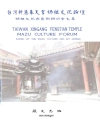This book addresses the question of how to properly handle Dōgen’s texts, a core issue that became critical during the Meiji period in which the philosophical appropriation of Dōgen became apparent inside and outside of the monastery.
In present day Dōgen studies, most scholarship is informed by a number of factions representing Dōgen. The chapters herein address: the Zennist (j. zenjōka) emphasising practice, the Genzōnians (j. genzōka) shifting the attention to the close reading of Dōgen’s texts, the laity movement opening up both the texts and the practice to people in modern society, and the Genzō researchers (j. genzō kenkyūka) searching for the authenticity and truth of Dōgen’s writings.
The book aims to clarify the rightful place of Dōgen: in the monastery, in denominational studies, or in modern academic philosophy? It brings forth various viewpoints on Dōgen, and analyzes the relations of these viewpoints from the premodern to modern times. The collected volume appeals to students and researchers in the field while establishing hermeneutic standards of reading and proposing new, original, and critical interpretations of Dōgen’s texts.
Chapter From Uji to Being-time (and Back): Translating Dōgen into Philosophy is available open access under a Creative Commons Attribution 4.0 International License via link.springer.com.
İçerik tablosu
1. A Critical History of Interpretations of an Ambiguous Shōbōgenzō Sentence.- 2. Dōgen and the Buddhist Way.- 3. Dōgen as Philosopher, Dōgen’s Philosophical Zen.- 4. Incorporating Dogen as philosopher? The example of Nishida Kitaro.- 5. Interpretive Sensibilities in Do̅gen’s “Genjo̅ko̅an”. Negotiating the Path Between Textual Authority and Creativeness.- 6. Dōgen as Philosopher, Metaphysician, and Metaethicist.- 7. Philosopher, Religious Thinker or Theologian?: Engaging Dōgen beyond Zen Modernism.- 8. The Practice of Time and the Time of Practice. Dōgen and Marcus-Aurelius on Impermanence and Self.- 9. Do Not Lose the Rice: Dōgen Through the Eyes of Contemporary Western Zen Women.- 10. Engaging with Dōgen’s texts: the nonduality of philosophy and religion.- 11. Uji: Analysis of Dōgen’s Language Style as the Formation Ground for his Philosophy.
Yazar hakkında
Dr. Ralf Mueller works at the Department of Philosophy at the University of Hildesheim, Germany. His Ph.D. Dissertation was on the Zen Buddhist figure, Dogen, the central figure of this present volume.
Dr. George Wrisley is an Associate Professor of Philosophy at the University of North Georgia. His areas of expertise are Metaphysics, Philosophy of Language, Ethics, Wittgenstein, Nietzsche and Buddhism.












